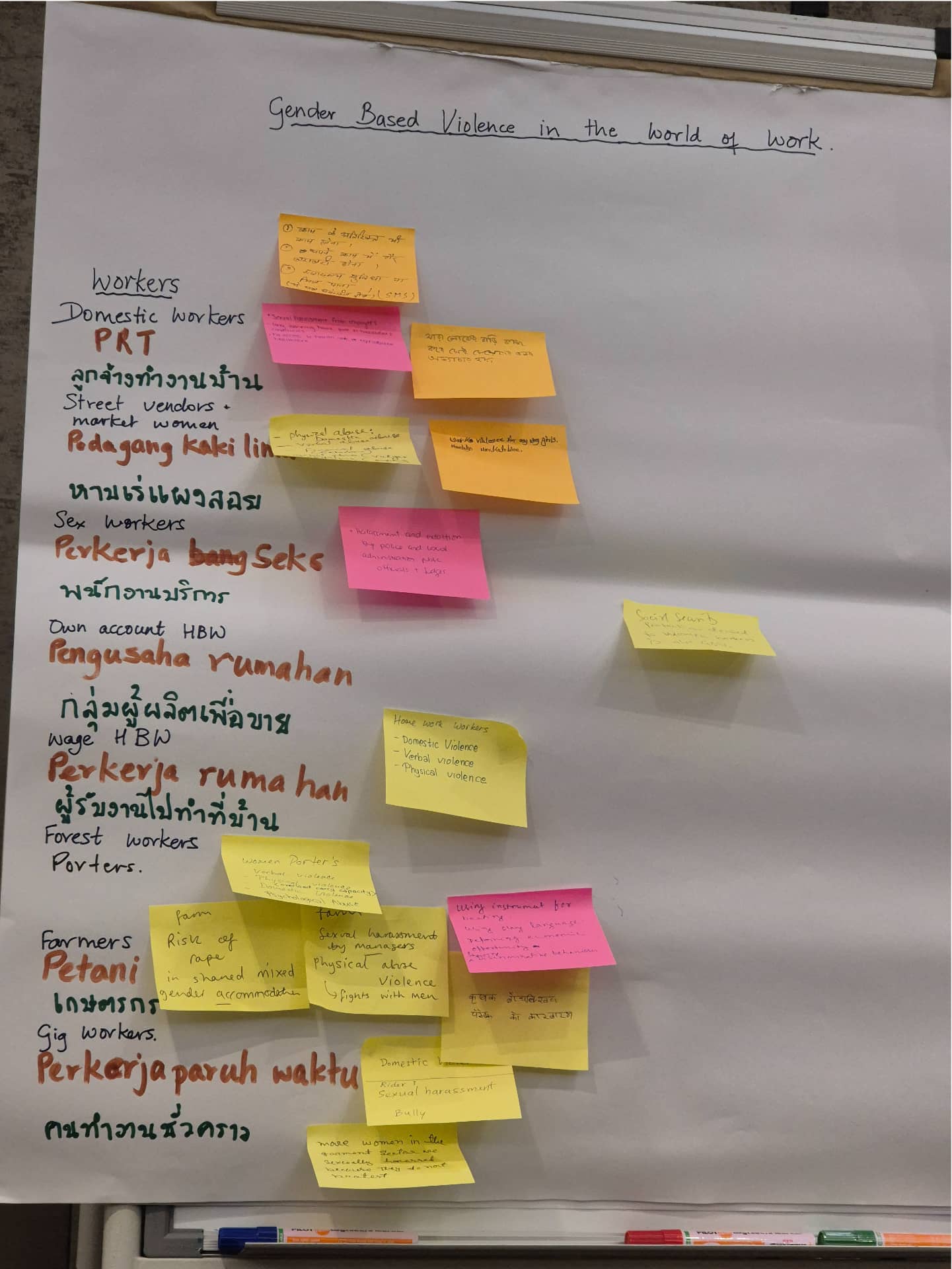Research
The GAATW International Secretariat (GAATW-IS) will continue to use research, participatory learning, advocacy and communication tools to realise the vision and mission of the Alliance.
GAATW’s research plays a substantial role in shaping and shifting global anti-trafficking discourses. Much of GAATW’s research has been action-oriented, feeding local or international change processes and done in collaboration with Members and allies.
Members’ involvement in research projects will maximise the knowledge and experience within the Alliance and ensure that research activities are relevant. In general, our research prioritises documenting women’s experiences and agency in order to advance global anti-trafficking discourses, strengthens our advocacy messages, creates a sound evidence base with the objective of promoting and protecting the human rights of trafficked persons, and expands knowledge in under-researched areas.
Overall, we seek to destabilise the dominant perception of women as victims in isolated, crime-centred responses to trafficking. Instead, we strive to present a complex picture of empowerment through migration, work, and human rights based approaches.
Communications
 The primary goal of GAATW’s communications work is to promote global representation and equal access to relevant information and knowledge that is essential in strengthening the Alliance. As the International Secretariat of a diverse network, GAATW engages across many communication styles, cultures and media to share and exchange information between Member Organisations.
The primary goal of GAATW’s communications work is to promote global representation and equal access to relevant information and knowledge that is essential in strengthening the Alliance. As the International Secretariat of a diverse network, GAATW engages across many communication styles, cultures and media to share and exchange information between Member Organisations.
Our communications work destabilises the dominant perception of women as victims in isolated, crime-centred responses to trafficking. Instead, it presents a complex picture of empowerment through migration, labour, and feminist rights-based approaches. Through the years, GAATW has initiated feminist participatory action research (FPAR) projects to document women’s lived realities and resilience within the migration and labour contexts. GAATW has used FPAR as a methodology to strengthen the political understanding of members and like-minded groups who are committed to advancing the rights of trafficked and migrating people.
GAATW’s communications and advocacy efforts bring in the views of diverse partners and members, provide strong gender analysis, include the voices of affected communities, and highlight the perspectives of the Global South which consequently add a unique perspective to international anti-trafficking and migration discourse.
GAATW’s communication services will continue to reflect the needs of the Alliance, in order to provide clear and timely responses in the anti-trafficking discourse. GAATW-IS aims to provide effective communication services through publications, online resources, and multi-media projects to carry forward the voices and knowledge of members, partners and affected groups at local, regional, and international levels.
